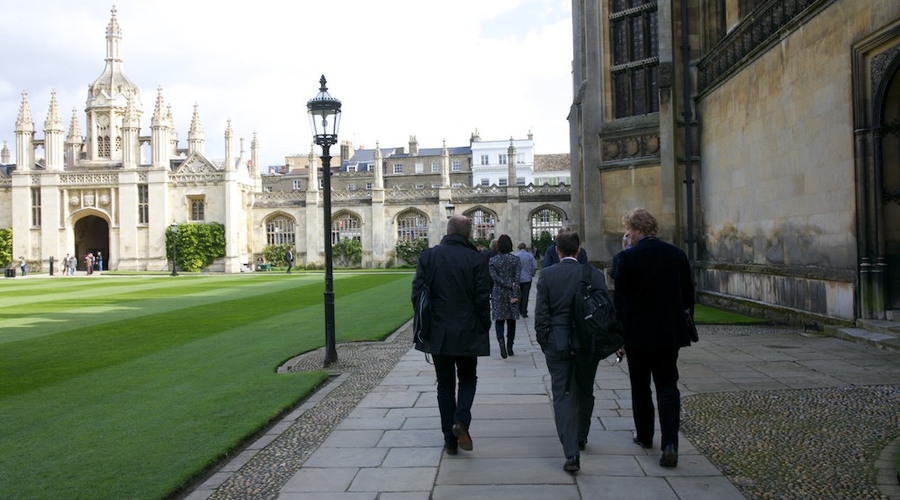RTS London joined forces with the BBC Academy to look at what went on at this year's RTS Cambridge Convention
The London Centre’s review of the RTS Cambridge Convention offered a lively discussion with panelists clashing over the digital threat to traditional telly and the BBC green paper.
Pat Younge, the former BBC Chief Creative Officer who founded the indie Sugar Films earlier this year, predicted “a really turbulent period ahead. This Government is more radical than people understood.”
Looking back to September’s Convention, Younge was left with the impression that television had become a “sunset industry. People still haven’t really engaged with what digital means. We danced around it again [at Cambridge] but at some point we are going to address it head on, probably when we crash into it.”
Nigel Walley, Managing Director of media consultancy Decipher, took an opposing view. “In a way it was the first post-internet Cambridge,” he said. Platforms and devices, he noted, were “almost invisible from the debate”, which had shifted back to a discussion about the “relationship between channels, studios and production companies”.
“TV people have a handle on the strange new world of interactive digital media – to me, that was a hugely positive thing,” Walley added.
Turning to John Whittingdale’s Convention address, Toby Syfret from Enders Analysis recalled that the Secretary of State for Culture, Media and Sport had said there were no plans to privatise Channel 4. A few weeks later, Syfret added, “it seems to be rather high on his agenda. Never believe politicians, particularly when they sound reasonable.”
Questions were taken from the audience and Peter Blackman from the Save our BBC campaign asked the panel for their thoughts on the Government’s green paper on the future of the BBC, which was published in July.
"Never believe politicians, particularly when they sound reasonable"
Syfret said he found “the tone of the green paper quite misleading and unduly negative –it’s about the need for reform rather than sustaining or improving”. In particular, he was anxious about threats to the broadcast spectrum and the principle of universality.
Walley said that he found Blackman’s organisation “absurd”. He added that the questions raised in the green paper, which also covered BBC funding, services and production, were “good questions to be asking in the 21st century”.
“If the BBC have got good answers, we’ll see them,” Walley said.
Younge accepted that the Government has the right to ask questions about the BBC, but argued that “the tone was unhelpful”. The ex-BBC staffer noted that “from a Tory secretary of state’s point of view, having a fight with the BBC is not bad politics”.
Five years of living in the US with its commercial TV model had taught Younge that “we put the BBC at risk at our cultural peril”.
Younge also backed the BBC’s new production division. “BBC Studios is absolutely critical if you want the BBC to remain a world-class producer-broadcaster,” he said. “The current model where BBC in-house producers can only pitch their ideas to BBC commissioners is out of date.”
Walley rebutted a view from the audience that suggested time-shifted telly was increasingly dominant, pointing out that recent BBC research showed that 90% of BBC output is watched live. The London Centre audience, he said, was composed of “urban, media-literate busy people” and not typical of the UK telly audience.
RTS online journalist Pippa Shawley discussed the Society’s digital coverage of the Convention, which included an app that allowed voting during sessions. The RTS events Twitter account, RTS Now, proved popular, reaching more than 39,000 people on the Thursday of the convention.
“We got beyond the bubble of Cambridge. During [BBC Director-General] Tony Hall’s keynote session, he was a trending topic on Twitter,” said Shawley.
Sue Robertson, the executive producer of the RTS Cambridge Convention, chaired the event, which was hosted by the BBC Academy at New Broadcasting House in central London on 7 October. Nick Radlo and Terry Marsh were the producers.
Photo by Paul Hampartsoumian

